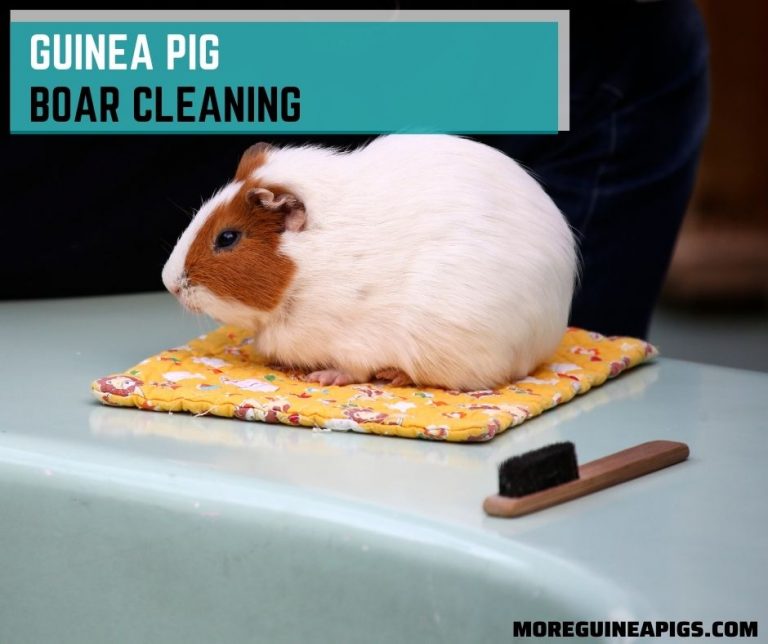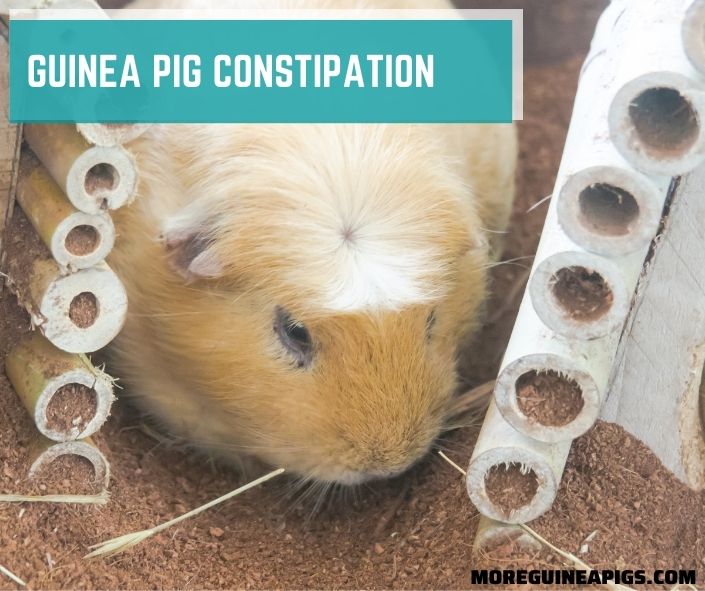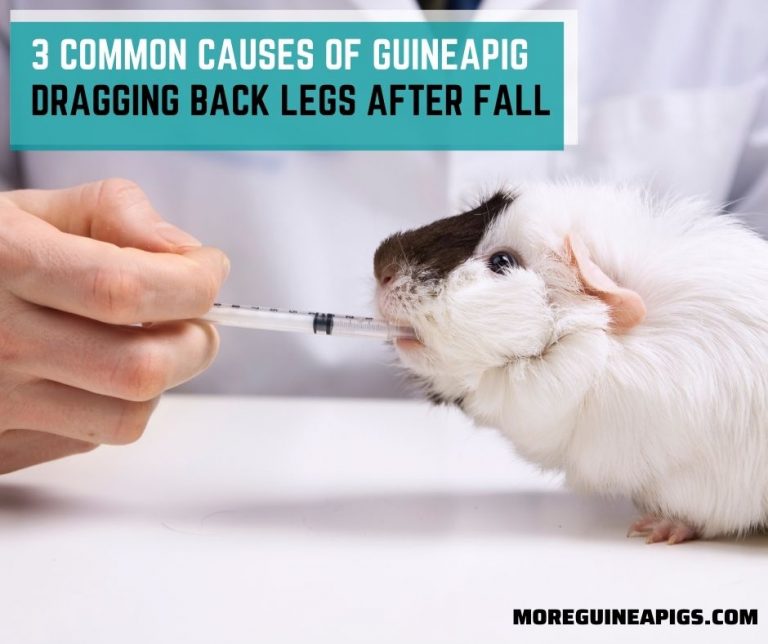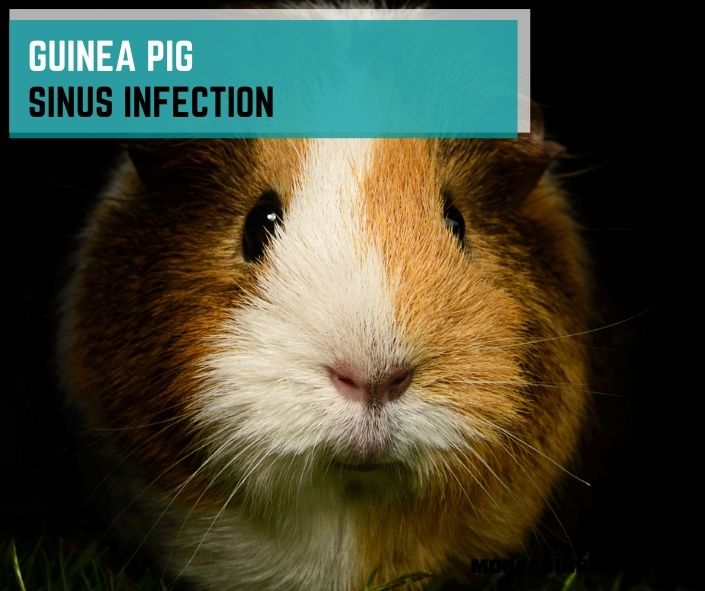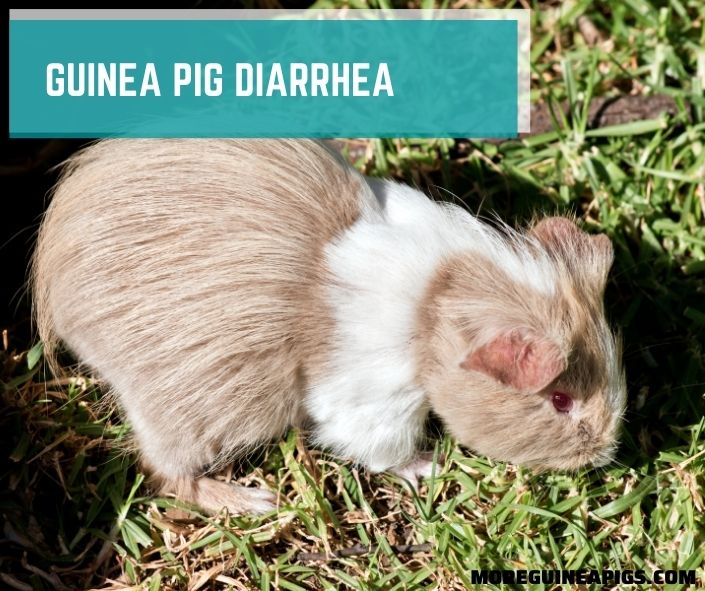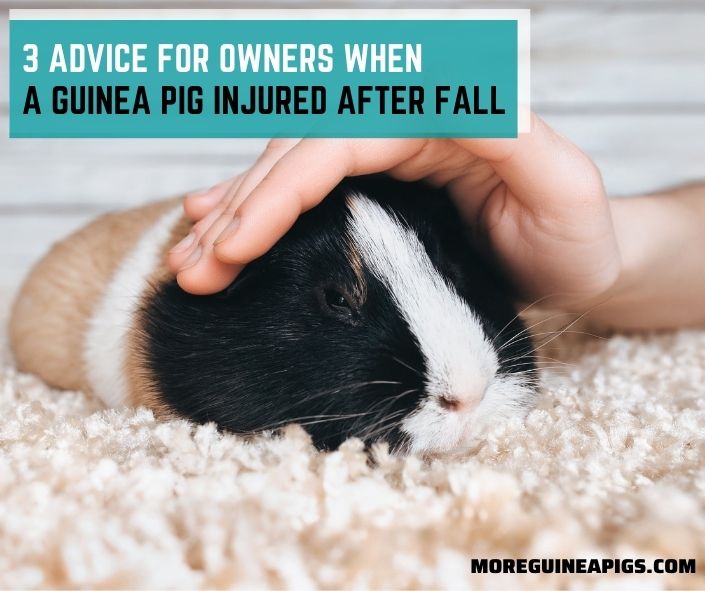Loss of Appetite in Guinea Pigs: Causes and Treatments
Guinea pigs are adorable pets, and it is quite easy to raise them if you handle them gently and give them attention frequently. Food is a crucial part of your pet life, and guinea pigs constantly eat foods to stay healthy and active.
Guinea pigs can experience a partial or complete loss of appetite, collectively called anorexia. There are several reasons why guinea pigs can experience loss of appetites like lack of fresh water supply, infections, diseases, change in diet, and lots more.
So, let’s dive into why your guinea pig does not eat, ways of treating this, and how to prevent this from happening easily.
Loss of Appetite in Guinea Pigs Symptoms (Anorexia)
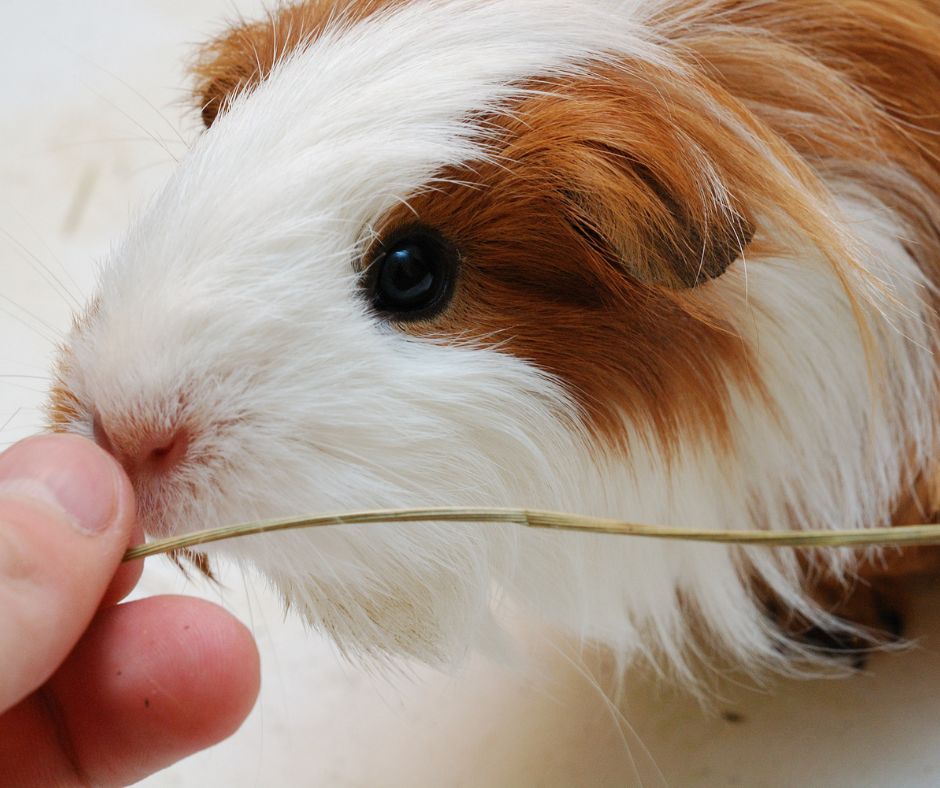
Guinea pigs can experience a lack or loss of appetite due to several reasons. It is essential that you determine the underlying cause of loss of appetite in guinea pigs before treating it.
Some of the signs that your guinea pig is suffering from loss of appetite are stated below:
- Weight loss
- Rough hair
- Depression
- Loss of elasticity on their skin
- Lethargy
- Your guinea pig does not touch its food and water
Note: Guinea pigs may have fever or diarrhea if an infection causes the loss of appetite.
11 Cause Loss of Appetite in Guinea Pigs
As stated before, there are several reasons why guinea pigs can lose their appetite. Some of the common causes of loss of appetite in guinea pigs are stated below.
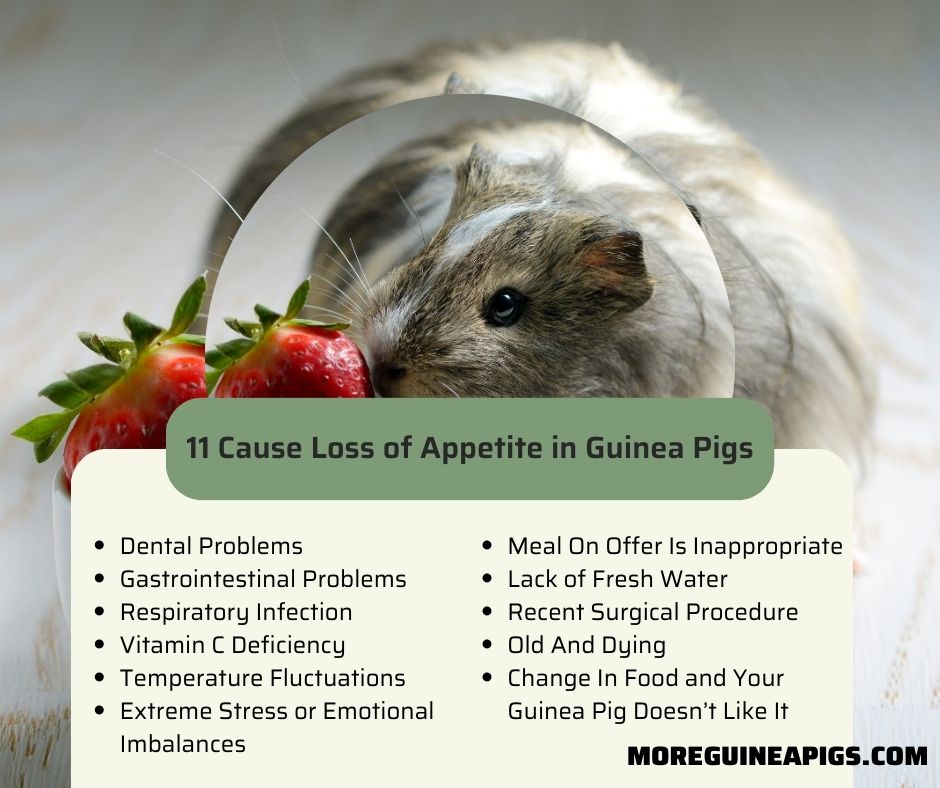
Dental Problems
The most common cause of loss of appetite in guinea pigs is dental disease. Generally, guinea pig’s teeth grow continuously and can grow to around 10 cm a year.
Their teeth can become overgrown, cutting into gums, leading to dental abscesses.
Malocclusion can then lead to slobbers, a condition where the fur under the jaw will be wet and continue to drool. Guinea pigs can also develop malocclusion if there is vitamin C deficiency in their body.
Overgrown teeth in guinea pigs can cause loss of appetite and lead to anorexia in extreme cases. A great way to prevent this is by providing chew toys for your guinea pig to help wear down their incisors.
You can also keep your guinea pig’s teeth trim and in great condition by providing hay that they can munch on.
Some other causes of dental problems in guinea pigs are:
- Oral lacerations
- Misaligned teeth, etc.
Gastrointestinal Problems
Guinea pigs can also develop loss of appetite due to gastrointestinal problems. Generally, guinea pigs are known to constantly eat and defecate.
However, your guinea pig can experience decreased appetite if it is not defecating normally (constipated).
Constipation occurs due to underlying dental problems, deficiency in fiber-rich food, and improper digestion. You can treat this by using supplemental food and fluids to help hydrate their intestines.
Guinea pigs usually have some good bacteria known as flora which helps to keep their bowel movements intact. However, there are situations where the balance of the good bacteria is lost, causing the production of bad bacteria.
The increase in the number of bad bacteria can then lead to diarrhea. A guinea pig suffering from diarrhea can also experience loss of appetite and weight loss.
Extreme Stress or Emotional Imbalances

Guinea pigs are delicate creatures and can easily experience stress for several reasons. This can then easily lead to loss of appetite and weight loss if the stress-induced factor is not removed.
Some of the signs that indicate that your guinea pig is stressed are:
- Chewing of the cage’s bars
- Reluctance to move
- Sitting hunched
- Overgrooming
- Circling around their cage repeatedly.
You can then determine that your guinea pig is stressed once you notice any of these signs plus loss of appetite. The next step is to determine what causes them stress and then remove the stress factor.
Some of the causes of stress in guinea pigs are:
- Illness
- Injury
- Fear
- Noisy environments
- Changing of the cage or cage’s location
- Overcrowding of their cage
- Lack of stimulation
- Loss of a guinea pig friend
- Lack of hygiene
- Bored
- Loneliness, etc.
Respiratory Infection
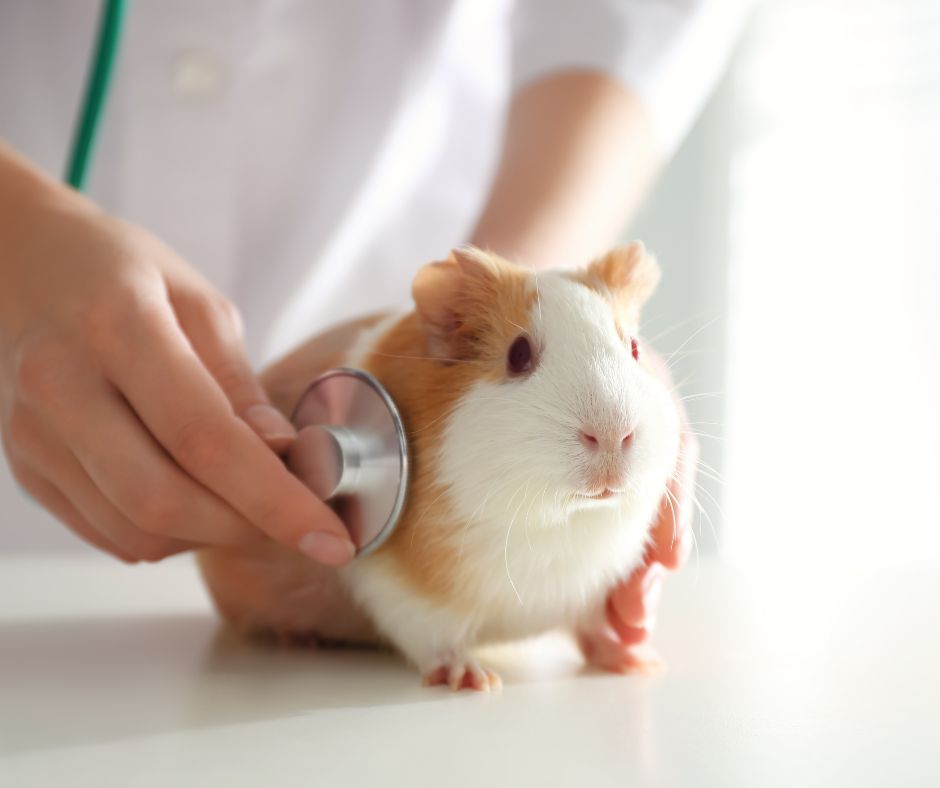
Respiratory infection is also among the causes of appetite loss in guinea pigs. A common respiratory infection of a guinea pig is pneumonia. Pneumonia is usually caused by bacteria and is associated with lung infections.
Some of the signs that a guinea pig is suffering from respiratory infection are sneezing, conjunctivitis, weight loss, oozing from the nose, depression, fever, and then loss of appetite.
Pneumonia can easily spread among guinea pigs and can lead to fatality if not treated immediately.
Vitamin C Deficiency
Vitamin C is an important nutrient needed by guinea pigs, but their body cannot synthesize their own vitamin C.
However, guinea pigs can develop vitamin C deficiency if you don’t supplement their diet. A deficiency can then cause scurvy leading to the hemorrhage of gums and tissues in their mouth.
This can prevent your guinea pigs from eating and masticating their food normally, leading to poor appetites. Some of the other causes of scurvy are weakness, lack of energy, and swollen joints.
Also read: Vitamin C For Guinea Pigs and 3 Best Ways to Offer It
Temperature Fluctuations
Guinea pigs are very sensitive to temperatures, and exposing them to temperatures above 26oC can lead to heatstroke.
However, housing them below 15oC can also affect their metabolism, and this shows that temperature fluctuations can make them fall ill and then cause loss of appetite.
You can prevent loss of appetite through temperature fluctuations by ensuring that the temperature in their enclosure does not fluctuate in their cage. Ideal temperature for your guinea pig falls between 600 F and 850 F.
Meal On Offer Is Inappropriate
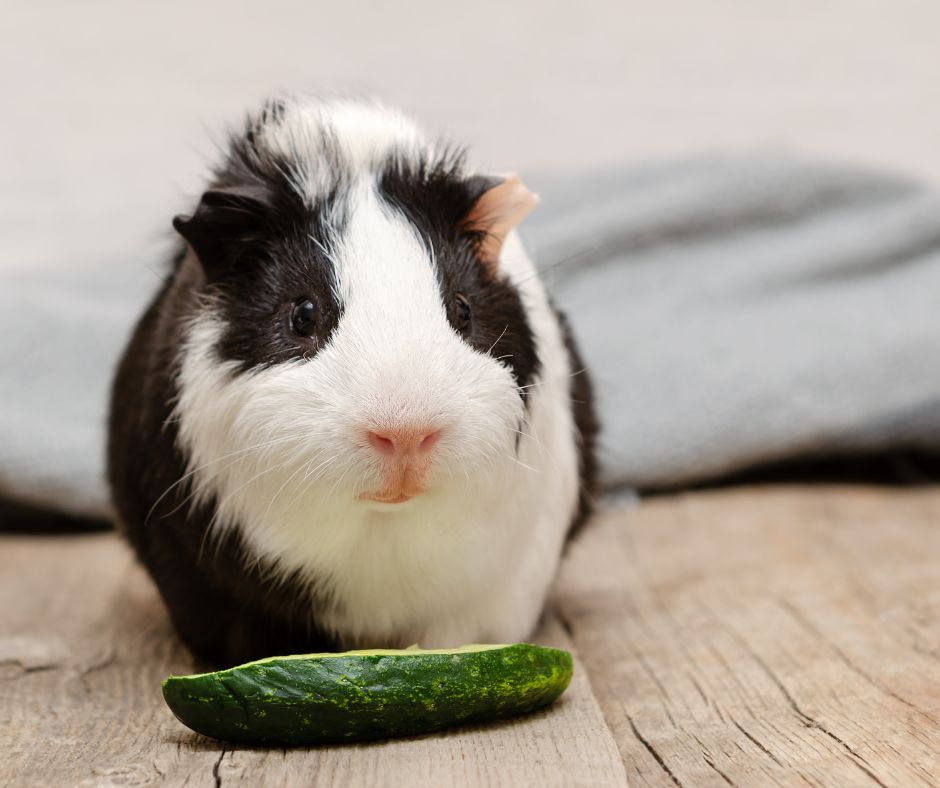
Offering an inappropriate meal is another cause of appetite loss in guinea pigs. For instance, your guinea pigs may not eat if you are feeding it with human foods instead of hays and pellets.
This is why you should research suitable foods for your guinea pigs before you decide to buy a guinea pig as a pet.
Change In Food and Your Guinea Pig Doesn’t Like It
Guinea pigs are sensitive creatures, and they may have an adverse response like loss of appetite to even small dietary changes.
Any dietary changes like changing the brand of hay or pellet, changing the dish location, dish, or the types of fruits or treats can cause loss of appetite.
This is because guinea pigs usually have personal preferences when talking about food. As a guinea pig owner, you should ensure that you provide the type of food that your guinea pig prefers or likes to help avoid appetite loss.
Lack of Fresh Water
Guinea pigs usually drink a lot of water and require that you provide them with clean and fresh water every day.
However, if you expose your guinea pigs to dirty water or they don’t get enough water, they can develop constipation which can then cause a lack of appetite.
Water bowls can easily get dirty, and your pigs may have difficulty drinking water from them. This is why it is best that you use a water bottle to provide water for them instead of a water bowl.
Recent Surgical Procedure
The most critical stage for most guinea pigs is the period after a surgical procedure.
Failure to provide care for your guinea pigs after a surgical procedure can cause several problems like ileus, respiratory disorders, and gas buildup in their gastrointestinal tract.
Most of these conditions can then affect how your guinea pig eats. This is why it is recommended that you feed your guinea pig after anesthesia to avoid gas buildup.
You should also monitor their fecal output closely after a surgical procedure to help ensure that their bowel movement returns to normal as soon as possible.
Old And Dying
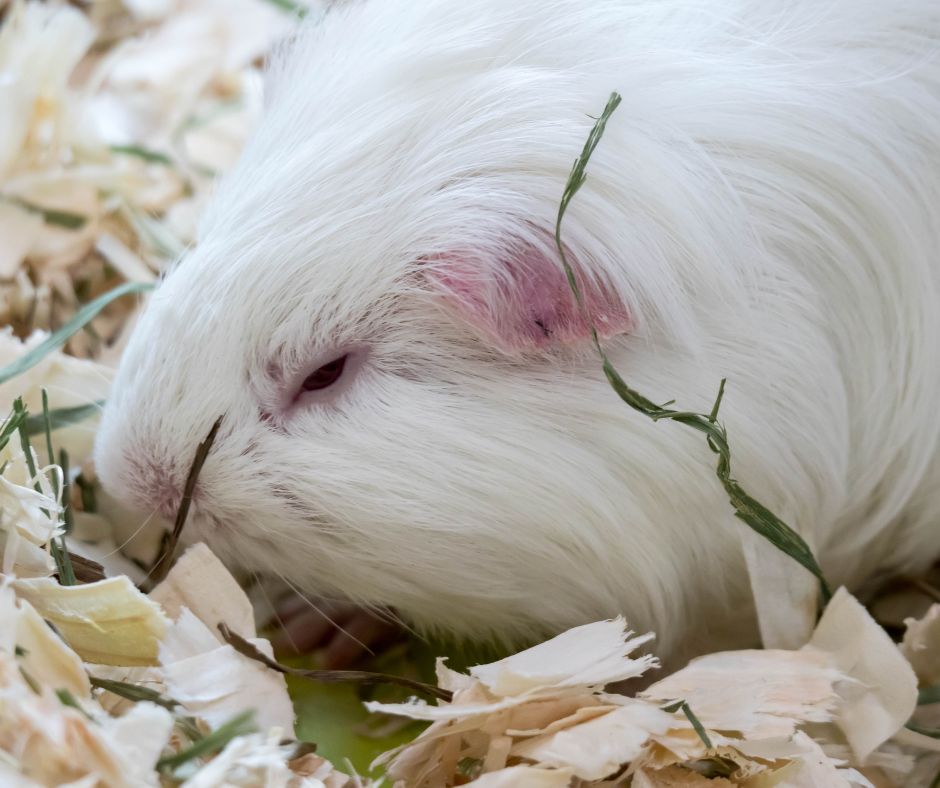
Loss of appetite can also signify that your guinea pig is becoming old and is dying. Some of the other signs that a guinea pig is getting old are:
- Cloudy eyes
- Thick and twisted toes on their paw
- Their joint looks stiff
- It makes hobbling movement
- Your guinea pig has a loss of energy
- There are tumors or growths around their head or body.
What Do You Do If Your Guinea Pig Won’t Eat?
Loss of appetite is usually a sign of an underlying problem in a guinea pig. However, a healthy guinea pig cannot go for more than 8 hours without food.
This is because they will start to develop a fatal GI stasis or health problems if this happens.
It is recommended that you consult with a vet immediately if you notice that your guinea pig is not eating for over 12 hours. Some of the things that you can do if your guinea pig is not eating are:
Feeding Palatable Foods
A great way to treat loss of appetite in guinea pigs is to try and encourage your guinea pig to eat. You can try to tempt your guinea pig with dark, moist greens like lettuce, parsley, cilantro, etc.
Some other options to use are top-quality grass hay, small amounts of fresh pellets, and fruits to entice them.
A good strategy to encourage your guinea pig to eat is to replace normal bedding in their cage with hay. You should also try to keep your guinea pig hydrated by providing fresh water for your guinea pigs daily.
Oxbow Essentials Guinea Pig Food
Veterinary Treatment for Diseases
As stated before, loss of appetite in guinea pigs is usually a sign of a health problem. A good way to treat loss of appetite is to consult with your vet for diagnosis and treatment of the disease.
Hand Feeding
You can also consider hand-feeding your guinea pig to help treat loss of appetite. However, you need to first consult with your vet before doing this.
Your vet will then help to recommend the best food to feed your guinea pig and may also provide a syringe for you.
Here are steps that you can follow when hand-feeding your guinea pigs.
- Wrap your guinea pig in a towel and place it on a hard surface.
- Place the tip of the syringe in your guinea pig’s mouth
- After the syringe is completely in, slowly press the plunger to put food in your piggy’s mouth.
- Allow your guinea pig to swallow the food.
How to Prevent Loss of Appetite In Guinea Pigs
A popular saying is prevention is better than cure. This is why you need to avoid losing appetite in your guinea pig.
However, there is no surefire way to prevent loss of appetite in guinea pigs because there are several causes of appetite loss in a guinea pig.
Some of the ways to prevent loss of appetite in guinea pigs are stated below.
Providing an Ideal Habitat for Your Guinea pig
You can help ensure your guinea pig is not stressed and free from health issues by providing an ideal habitat for them.
An ideal habitat suitable for a guinea pig should have lots of space to roam around, clean, have suitable bedding and accessories, etc.
You will also need to feed your guinea pig with a well-balanced diet and fresh water. Guinea pigs are also social creatures, and you can house them in pairs to keep them happy.
Always Pay Attention Symptoms of a Sad or Sick Guinea Pig
You can also prevent loss of appetite in your guinea pigs by checking their day-to-day activities. This will help detect anything wrong with your guinea pig very early.
Some of the signs to be on the lookout for are teeth grinding, weight loss, reluctance to move, hunched appearance, squeaking in pain, etc.
Kaytee Timothy Biscuits Baked Treat
Conclusion
Generally, loss of appetite in guinea pigs usually indicates that they are experiencing underlying health problems. However, guinea pigs can develop a fatal health problem if your guinea pig goes for more than 8 hours without food.
This is why you should try to address the loss of appetite in guinea pigs immediately to help ensure it does not affect your guinea pig’s health.



